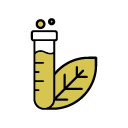
Haribo Quaxi
Ingredients
Zutaten: Glukosesirup; Zucker; Dextrose; Gelatine; Säuerungsmittel: Citronensäure; Sonnenblumenöl; Überzugsmittel: Bienenwachs weiss und gelb; Aroma; Frucht- und Pflanzenkonzentrate: Apfel, Spirulina, Saflor; Invertzuckersirup. Kann Spuren von MILCH, WEIZEN enthalten.Category
Bonbons
Brand
Haribo
Barcode
4001686322536
Processing
Additives
-
Acidulant, flavor enhancer, preservative; naturally occurring in citrus fruits but often derived from molds; used in beverages, confectionery, and canned foods. Side effects are rare but may cause allergic reactions or digestive issues in sensitive individuals.
Not Restricted
-
Used to preserve meat products. Can be toxic at high doses and promote the formation of carcinogenic nitrosamines.
Not Restricted
Questionable Ingredients
-
Sunflower oil has a high proportion of omega-6 fatty acids, which can cause an imbalance in the body. Excessive consumption may lead to inflammation and an increased risk of chronic diseases. The oil is sensitive to heat and may form harmful compounds at high temperatures. Processing and refining sunflower oil can also produce trans fats that contribute to cardiovascular disease. It contains fewer antioxidants than other vegetable oils and may cause allergic reactions. Using a variety of vegetable oils is recommended to reduce dependence on sunflower oil.
-
Natural flavors are derived from plant, animal, or microbial sources, including microorganisms, molds, or even pig bristles.
-
Refined white sugar is associated with health risks such as weight gain, type 2 diabetes, heart disease, and tooth decay. The World Health Organization (WHO) recommends limiting daily sugar intake to less than 10% of total daily calorie intake, which corresponds to about 25 grams of sugar (6 teaspoons) for a physically active adult. A further reduction to 5% (3 teaspoons or 15 grams) may offer additional health benefits. High sugar consumption can lead to overweight, type 2 diabetes, heart disease, and tooth decay. It is advisable to reduce the consumption of added sugars and focus on a balanced diet with natural, unprocessed foods.
-
Concentrates in food and drinks require cautious consumption. Excessive intake, often high in sugar, salt, or other unhealthy ingredients, can lead to diet-related health issues. It is advisable to moderate consumption and pursue a balanced diet with fresh, unprocessed foods. Informed choices and guidance from a nutritionist or doctor can help minimize risks and support health.
Additives
-
Acidulant, flavor enhancer, preservative; naturally occurring in citrus fruits but often derived from molds; used in beverages, confectionery, and canned foods. Side effects are rare but may cause allergic reactions or digestive issues in sensitive individuals.
Not Restricted
-
Used to preserve meat products. Can be toxic at high doses and promote the formation of carcinogenic nitrosamines.
Not Restricted
Questionable Ingredients
-
Sunflower Oil
Sunflower oil has a high proportion of omega-6 fatty acids, which can cause an imbalance in the body. Excessive consumption may lead to inflammation and an increased risk of chronic diseases. The oil is sensitive to heat and may form harmful compounds at high temperatures. Processing and refining sunflower oil can also produce trans fats that contribute to cardiovascular disease. It contains fewer antioxidants than other vegetable oils and may cause allergic reactions. Using a variety of vegetable oils is recommended to reduce dependence on sunflower oil.
-
Natural Flavors
Natural flavors are derived from plant, animal, or microbial sources, including microorganisms, molds, or even pig bristles.
-
Sugar
Refined white sugar is associated with health risks such as weight gain, type 2 diabetes, heart disease, and tooth decay. The World Health Organization (WHO) recommends limiting daily sugar intake to less than 10% of total daily calorie intake, which corresponds to about 25 grams of sugar (6 teaspoons) for a physically active adult. A further reduction to 5% (3 teaspoons or 15 grams) may offer additional health benefits. High sugar consumption can lead to overweight, type 2 diabetes, heart disease, and tooth decay. It is advisable to reduce the consumption of added sugars and focus on a balanced diet with natural, unprocessed foods.
-
Concentrate
Concentrates in food and drinks require cautious consumption. Excessive intake, often high in sugar, salt, or other unhealthy ingredients, can lead to diet-related health issues. It is advisable to moderate consumption and pursue a balanced diet with fresh, unprocessed foods. Informed choices and guidance from a nutritionist or doctor can help minimize risks and support health.




